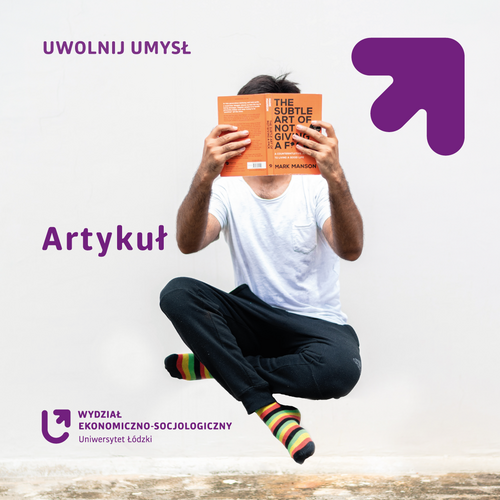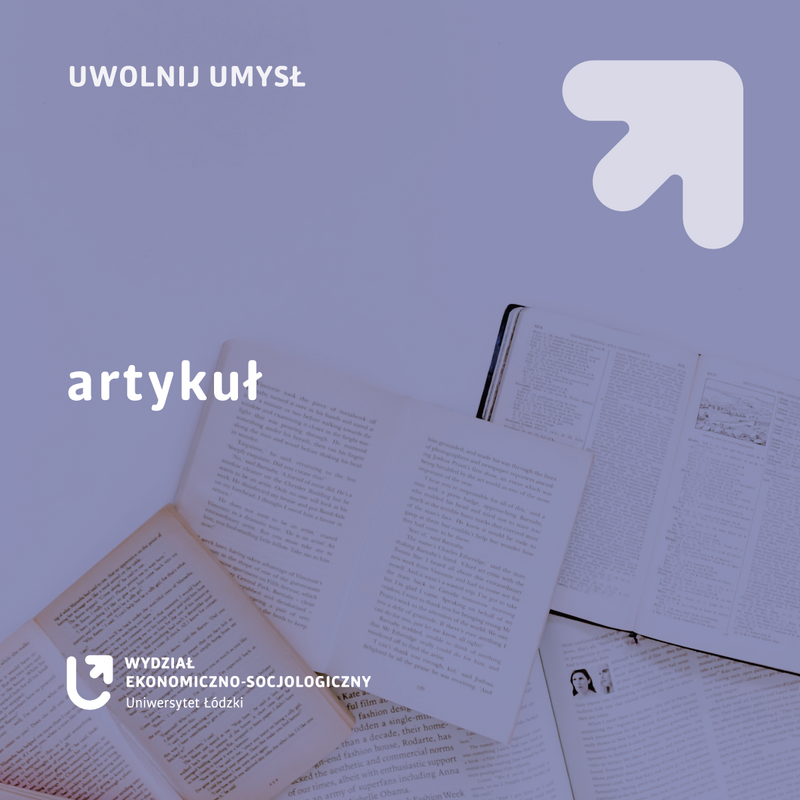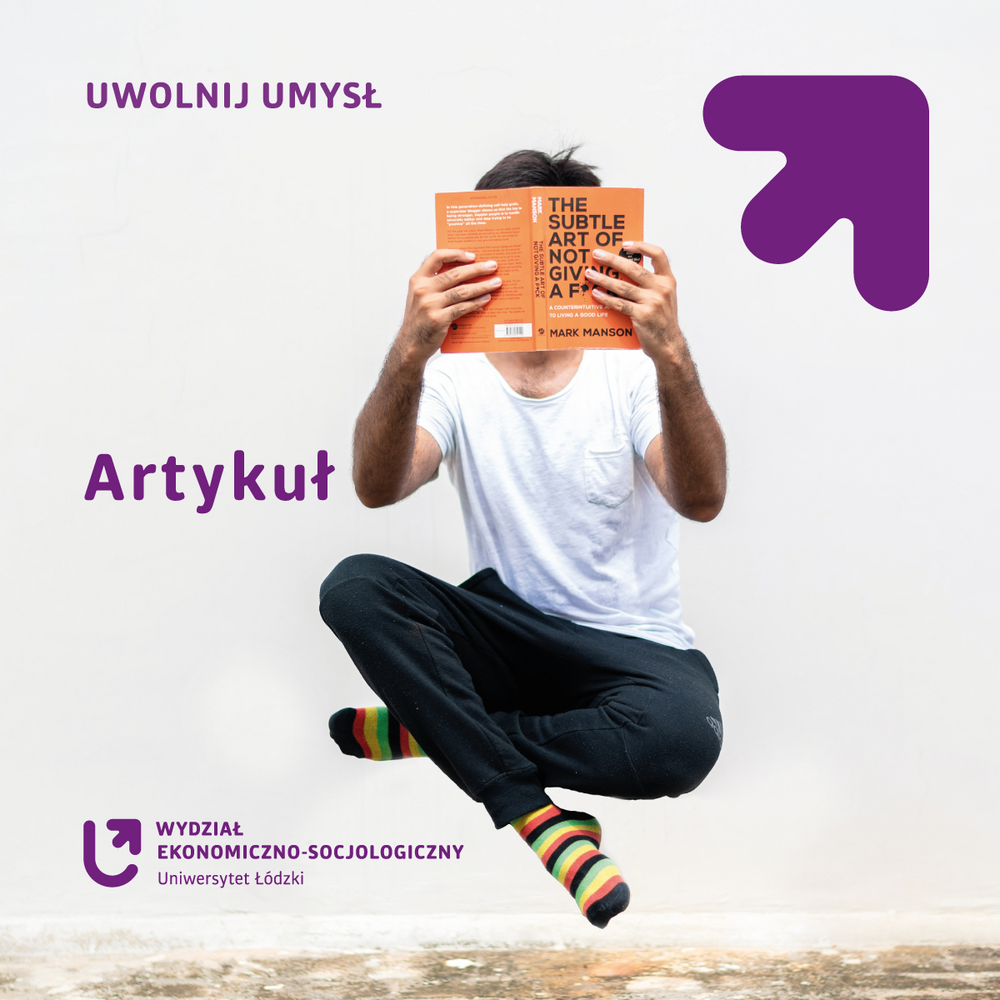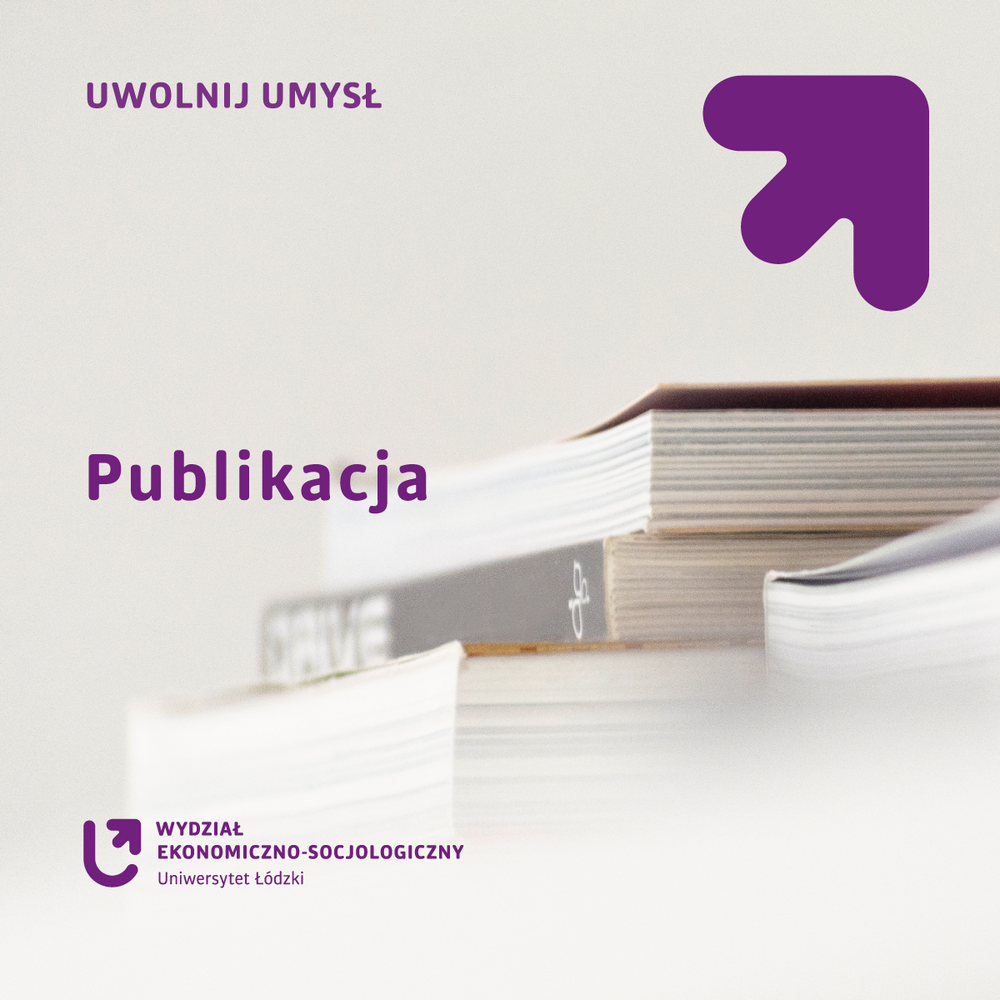- Uniwersytet Łódzki
- Wydział Ekonomiczno-Socjologiczny
- Projekty naukowe
- Białoruś i Polska
Białoruś i Polska
Białoruś i Polska. Od historycznych korzeni systemów polityczno-gospodarczych do planowania instytucjonalnego rozwoju.
W ramach projektu wykorzystana została teoria i narzędzia nowej ekonomii instytucjonalnej badającej wpływ polityki, kultury, historii na procesy gospodarcze.
Celem projektu jest nakreślenie kompleksowego portretu instytucjonalnego współczesnej Białorusi i Polski, określenie genezy ich matryc instytucjonalnych, opracowanie koncepcji planowania instytucjonalnego, jako narzędzia polityki publicznej służącego poprawie efektywności rozwoju obu krajów. Cel główny podzielony został na cele cząstkowe przyporządkowane do zadań:
- Rozpoznanie historycznych i kulturowych korzeni dominujących instytucji formalnych i nieformalnych, naświetlenie specyfiki cyklów instytucjonalnych, nakreślenie i porównanie matryc instytucjonalnych współczesnej Białorusi i Polski w sferze polit., gosp., ideologicznej oraz identyfikacja instytucji włączających i wykluczających.
- Określenie modeli mentalnych współczesnych Białorusinów i Polaków wpływających na postawy i zachowania polit. i ekonom. oraz pozycjonowanie ich na europejskiej mapie mentalności;
- Wskazanie obszarów pożądanych zmian instytucjonalnych podnoszących efektywność funkcjonowania systemu gosp. i polit. Zaproponowanie narzędzi dostosowanych do instytucjonalnej specyfiki obu krajów (Institutional Planning).
Wykorzystane zostały osiągnięcia teoretyczne m.in. takich badaczy jak D.C. North, O. Williamson, D. Acemoglu, J. Robinson, J. Wilkin, R. F. Inglehart. Dotychczas nie było badań, które w tak kompleksowy sposób próbowałyby, z perspektywy instytucjonalnej, wyjaśnić trajektoria historycznego rozwoju tych krajów.
Wyniki badania dostarczają istotnych wskazówek odnośnie obszarów wymagających zmian instytucjonalnych oraz kształtowania odpowiednich narzędzi i sposobów prowadzenia polityki dostosowanych do modeli mentalnych obywateli – szczególnie w obszarach kompetencji ministerstw edukacji i polityki społecznej.
Kierownikiem projektu jest dr Aliaksandra Sidarava, a Wykonawcą dr hab. Andrzej Pieczewski, prof. UŁ - pracownicy Katedry Historii Ekonomii.
Andrzej Pieczewski, aliaksandra sidarava, Belarusian vs. Polish transformation. two paths of institutional change
“UR Journal of Humanities and Social Sciences”, 1 (22) 2022, s. 168–198. DOI: 10.15584/johass.2022.1.9

Abstract: The aim of the article is to compare the results of Belarus and Poland’s post-Communist transformation and to indicate the reasons for the two different paths followed. We hypothesize that both the historically shaped differences in mental models and strong ties with international protectors of these countries were the main elements that determined the paths of transformations. We also try to highlight the main differences in the mentality and the contemporary institutional matrix of the two countries. We modify the matrix by adding a new element – an external protector – which is critical, especially regarding these two countries. We use the tools and methods of new institutional economics in our analyses.
Aliaksandra Sidarava, the influence of informal institutions on the vector of socio-economic development: the experience of Poland and Belarus
World Research Library, 2023
Abstract: The article explores the influence of informal institutions on the choice of the socio-economic development vector. The significance of informal institutions in the context of institutional transformation is provided. The difference in informal institutions between Poland and Belarus is also analyzed. Using the example of these two countries, the key importance of informal institutions in reforming the economy is demonstrated.

Andrzej Pieczewski, Aliaksandra Sidarava, the Polish diaspora in Belarus: functioning under the Lukashenko regime
“THE POLISH REVIEW”, UNIVERSITY OF ILLINOIS PRESS, NO. 3 (69) 2024.

Abstract: As a result of the collapse of the Soviet Union, an independent Belarus came into being, with a large Polish diaspora within its borders. Initially, the country embarked on a path of democratic and market reforms, and cooperation with Poland seemed promising. In 1994, Alexander Lukashenko won the presidential election. From that point on, the authoritarianization of the political system and reversal of market reforms began. Poland and Belarus began to diverge in terms of their chosen political and economic systems and strategic foreign partners. It became increasingly difficult for Warsaw to “get along” with Minsk. The Polish diaspora became somewhat hostage to the international situation and the Belarusian dictator. This article presents the basic problems faced by the Polish diaspora in Belarus under Lukashenko’s rule in terms of preserving its national identity, culture, and language, and establishes prospects for further developments. We analyze current news (independent and regime), official Belarusian statistics, estimates from independent experts, and the (primarily Polish and Belarusian) literature on the subject. We present the genesis of the Polish diaspora and attempt to determine its current size. We demonstrate Poles’ changing situation under Lukashenko’s rule and his personal attitude toward the Polish minority. We highlight the special role of the Polish diaspora in the regime’s propaganda. We devote significant space to the issue of freedom of education in the Polish language as, in our opinion, one of the most important conditions for preserving national identity. We reference recent events triggered by the wave of mass public protests that followed the 2020 presidential election, which involved an escalation of the Lukashenko regime’s actions against the Polish diaspora. We hypothesize that the conditions for the functioning of the Polish diaspora are currently the worst since the establishment of the Belarusian state, and the continued persistence of such a situation seriously threatens the linguistic and cultural distinctiveness of Poles in Belarus.
ARTYKUŁ ► The Polish Diaspora in Belarus: Functioning under the Lukashenko Regime
Aliaksandra Sidarava, Belarus – institutional cycles and the historical roots of the contemporary institutional matrix

Abstract: One of the modern areas of scientific research involves searching prerequisites for the formation and functioning of specific institutional models within countries. The purpose of the article is to identify and analyze the main institutional cycles in the formation of Belarus' socio-economic systems. This will help determine the effect of historical dependence on the trajectory of development and discover the origins of the country's modern institutional matrix. The novelty of the study of institutional cycles and their dynamics lies in its interdisciplinary nature. The author has adopted the theory within New Institutional Economics, particularly the achievements of North, Acemoglu, and Robinson. The research methods include a historical analysis and a comparative analysis.
Artykuł: Andrzej Pieczewski, Aliaksandra Sidarava: "Why do regimes arise and persist? Belarus and the theory of Daron Acemoglu and James Robinson"
Abstract: The State of Belarus (a former Soviet republic) is classified as a pure autocracy, and 2024 will be the 30th anniversary of Lukashenko coming to power. He created a unique type of economy called ‘state capitalism’ that is synergistic with the political system. In this paper, we refer to the theories of Daron Acemoglu and James Robinson and consider what factors and institutions allowed Lukashenko to take power and ensure the durability of the authoritarian system. We found that Belarus deviates in some respects from Acemoglu and Robinson’s theory, particularly on two issues: the dictator’s rise to power and the factors that ensure the system’s persistence. We hypothesize that for the former, culture and mental models were crucial, while for the latter, the dictator’s external protector, Russia, was relevant. We use historical analysis and analysis of economic and institutional development indicators.
Andrzej Pieczewski, Poland’s institutional cycles. Remarks on the historical roots of the contemporary institutional matrix
Abstract: The aim of this article is to identify and evaluate institutional cycles in Poland’s history. The author analyses institutional cycles (periods with a permanent predominance of dominant institutions that determine the character of the entire political–economic system) and assesses them in terms of the predominance of inclusive or extractive political and economic institutions. The Polish lands lying at the edge of Western civilisation were in the orbit of the influence of the West and East. It adopted institutions from both sides and created its own original ones. In the end, Western institutions prevailed. However, over the course of Poland’s more than 1,000-year history, extractive institutions prevailed, making the country backward in relation to the West. The article applies theory derived from new institutional economics and historical analysis to explore Poland’s institutional cycles.

Andrzej Pieczewski, Aliaksandra Sidarava, mental models of Belarusians and Poles. history as the key to their explanation
Obecnie artykuł znajduje się w procesie recenzyjnym
Wkrótce ukaże się artykuł podsumowujący projekt, który zawiera rezultaty badania mentalności ekonomicznej i politycznej Białorusinów i Polaków oraz próbę ich historycznego wyjaśnienia.

Andrzej Pieczewski, Aliaksandra Sidarava: Belarus and Poland ‒ from the historical roots of institutional matrices to institutional planning
Zachęcamy do lektury kolejnego artykułu z projektu BaP

Abstract: The institutional matrixes of contemporary Belarus and Poland are the result of a long historical process. Despite their close proximity and common history, these countries are now two completely different institutional systems. The aim of this article is to identify the strengths and weaknesses of the institutional matrices of Belarus and Poland and to identify the opportunities and threats arising from the specificities of the dominant institutions functioning in these countries. On the basis of this analysis, we attempt to identify the directions of desirable institutional changes increasing the efficiency of the political-economic-social system. Our recommendations are focused around the most difficult area ‒ the ideological plane ‒containing a set of informal institutions created on the basis of culture during the historical process. Creating recommendations for institutional change for this area is a difficult challenge, as the directions of change are essentially dependent on the values that guide us. The axiological polarisation of the institutional systems (especially the political system) of these countries is very high. While we are able to indicate the desired directions of changes in mentality for Poland (and we do indicate them), from the so-called western point of view, for Belarus the axiological foundations of the political and economic system would have to be completely changed. This confirms the thesis that culture is the basis of political-social-economic systems,
although in the case of both countries, the geopolitical context is of considerable importanceThe institutional matrixes of contemporary Belarus and Poland are the result of a long historical process. Despite their close proximity and common history, these countries are now two completely different institutional systems. The aim of this article is to identify the strengths and weaknesses of the institutional matrices of Belarus and Poland and to identify the opportunities and threats arising from the specificities of the dominant institutions functioning in these countries. On the basis of this analysis, we attempt to identify the directions of desirable institutional changes increasing the efficiency of the political-economic-social system. Our recommendations are focused around the most difficult area ‒ the ideological plane ‒ containing a set of informal institutions created on the basis of culture during the historical process. Creating recommendations for institutional change for this area is a difficult challenge, as the directions of change are essentially dependent on the values that guide us. The axiological polarisation of the institutional systems (especially the political system) of these countries is very high. While we are able to indicate the desired directions of changes in mentality for Poland (and we do indicate them), from the so-called western point of view, for Belarus the axiological foundations of the political and economic system would have to be completely changed.This confirms the thesis that culture is the basis of political-social-economic systems, although in the case of both countries, the geopolitical context is of considerable importance.
https://journalofhumanitiesandsocialsciences.com/332024/full.pdf
Analiza swot matryc instytucjonalnych Białorusi i Polski oraz rekomendacje dla polityki państwa
Projekt współfinansowany ze środków Narodowego Centrum Badań i Rozwoju

